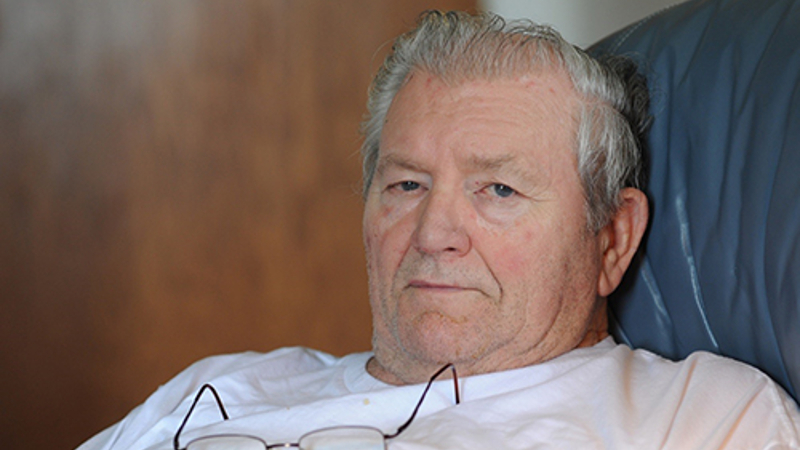Tim Roberts
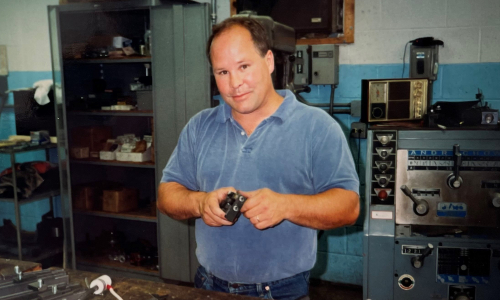
Warning: This story contains mentions of suicide that may be triggering to some readers.
Tim Roberts was raised in Iowa and Illinois with three siblings. He began playing tackle football at age eight and rarely missed a practice. He was small compared to other football players but made up for it by being strong, fast, and aggressive. Tim continued to play through both junior high and high school in Elk Grove Village, Illinois, graduating in 1977.
Friday nights on the field with his teammates was Tim’s favorite place to be. He played on offense as a running back and on defense as a cornerback, almost never taking a break. He was all-conference and all-area for two consecutive years and an honorable mention for all-state. During his time playing football, Tim also experienced a handful of known concussions, one with complete loss of consciousness, along with many other hard hits. We know of one incident where he was unconscious after a play and left the field in an ambulance.
Tim was very social and made many friends in high school and college. He met his future wife, Liz, at the University of Tennessee. They were married in 1991 and had three children: Caroline, Thomas, and Jack. They were his absolute pride and joy. Because of them, Tim was generous, mischievous, and loved big family gatherings.
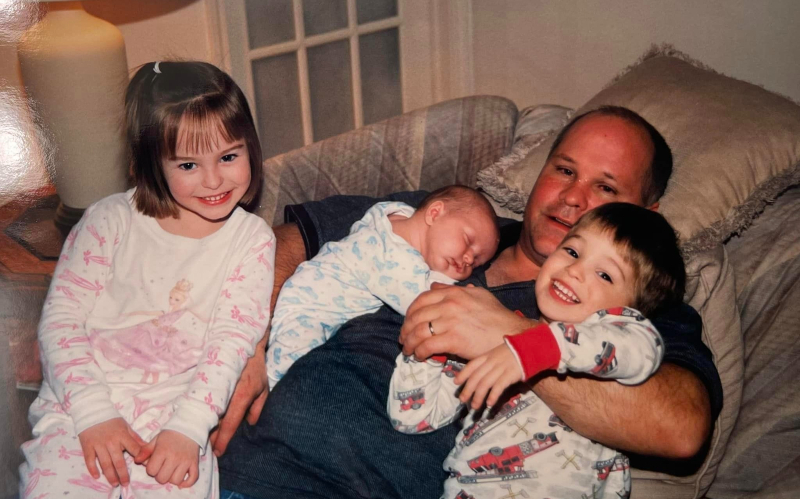
Intelligent and gifted at all things mechanical, Tim was an accomplished designer of custom manufacturing equipment. He also loved spending time boating, golfing, and was particularly fond of his dog, a husky named Nikki.
Unfortunately, over the years, we noticed several changes in Tim. He began to drink constantly and heavily, and he became short-tempered. Usually a terrific husband and father, he started to fail in that role, as well. On one particularly difficult weekend, things really fell apart. Tim threatened suicide, which alarmed our family, and several of us responded to help him.
As time went on, we became more alarmed about his alcohol abuse, aggression, and forgetfulness. His erratic behavior, combined with drinking, led to accidents, broken bones, and hospital stays. These difficulties cost him his marriage and damaged his relationships with his children. His world diminished, and he spent most of his final months with his devoted parents.
We suspected CTE even though he only played football through high school. We suggested it to his doctors, but none supported the idea.
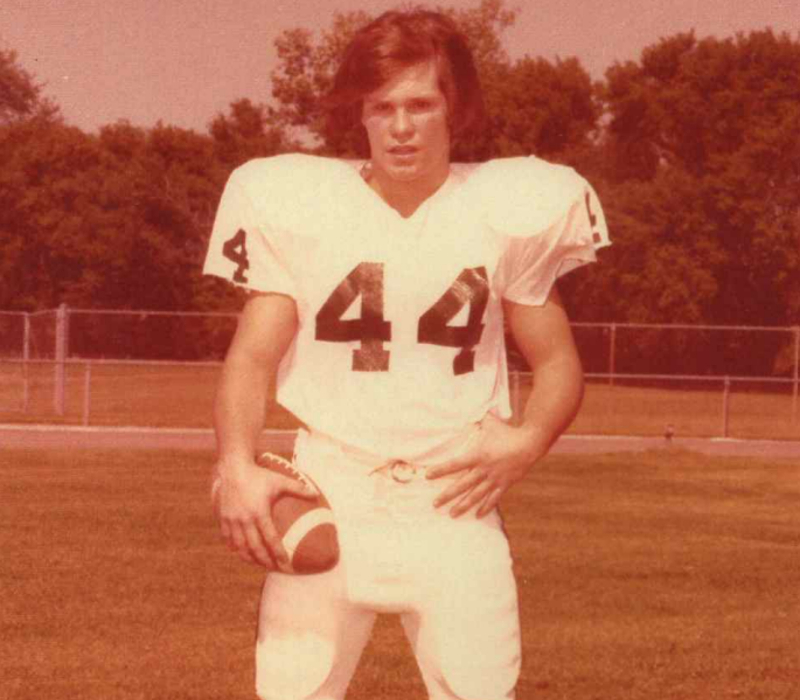
Tim also developed renal failure secondary to a rare autoimmune disease approximately 20 years prior to his death. Eventually, he required dialysis and later a kidney transplant. Unfortunately, because of his inability to comply with medical advice, he was unable to receive a transplant. Eventually, Tim discontinued his sporadic dialysis treatment. Surrounded by family at the time of his death, Tim finally succumbed to the consequences of renal failure.
We decided to donate Tim’s brain to the UNITE Brain Bank, where Dr. Ann McKee diagnosed him with stage 4 (of 4) CTE. This is the first time CTE of this severity was found in someone who played only through high school. We had suspected CTE but were shocked and saddened to see how advanced it was. Tim paid a big price for playing football, across all aspects of his life.
We have since learned that Tim was the prototypical football player likely to develop CTE. He started playing at a young age, started on both offense and defense, was on the smaller side, and played to win.
The decision to donate a loved one’s brain to research is not taken lightly. We hope these findings increase awareness of the dangers of repetitive head injuries to athletes. We are so grateful to Dr. McKee, the BU CTE Center, and the Concussion Legacy Foundation for their ongoing research.
Greg Robinson
Archie Rockwell
Steve Romanik
Rocky Rosema
Edward Allen Roth
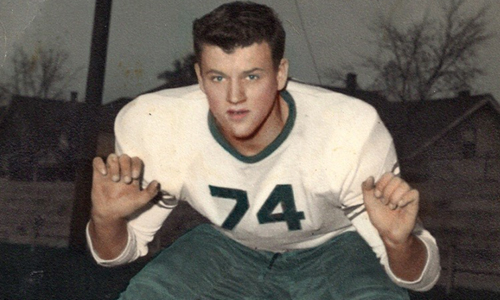
Edward Allen Roth was born on June 2, 1929 in Fort Wayne, Indiana. The son of Joseph and Nellie (Leiter) Roth, he was the last of four children. His parents divorced shortly after his birth and his siblings were significantly older. Growing up in the Depression Era, Ed often referred to himself as a product of the “School of Hard Knocks,” living on his own from age 14. Strappingly handsome and equally strong, Ed took an early liking to football, taking his frustrations out and proving himself on the athletic field. He also had an intense passion for music, playing various horn instruments in his high school band.
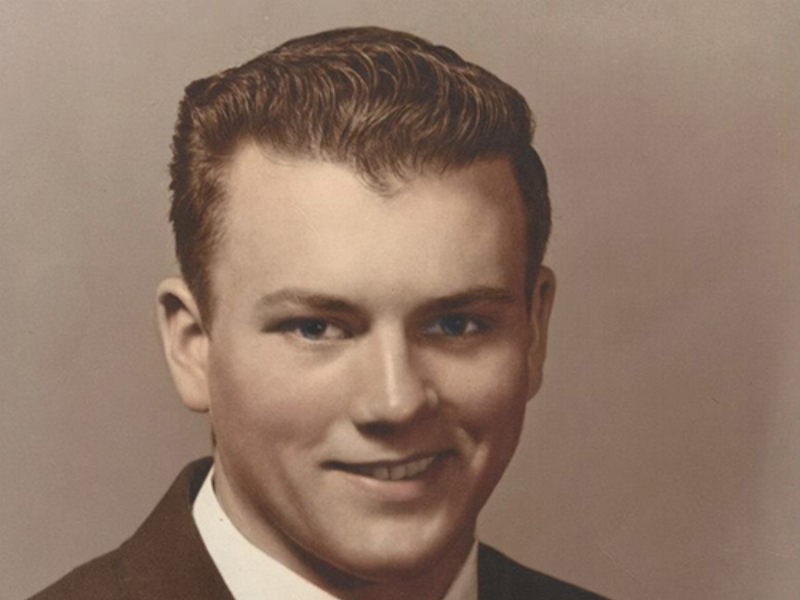
Despite his first love of music, athletics were his ticket to success. Ed earned a statewide reputation in both track & field and football as a student at South Side High School (not to mention joining the band on field at halftime). He was recruited by Bear Bryant to play for the University of Kentucky. However, his loyalty to his home state led him to play for Clyde Smith at Indiana University, where he earned his B.S. in Physical Education and was a member of the Delta Upsilon fraternity and R.O.T.C.
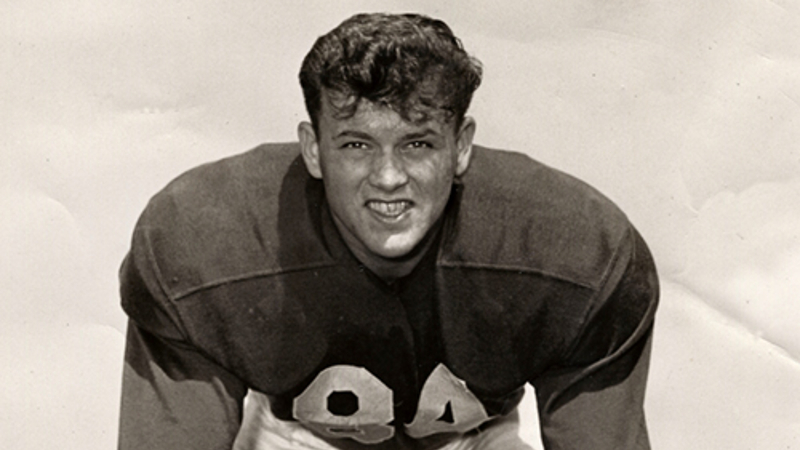
Ed lettered in football, track & field, and wrestling while at Indiana, playing offense and defense on the football team. Due to injury that kept him from playing most of his sophomore year, Ed was granted permission to play at Indiana for five seasons, allowing him to work on a Master’s degree. The highlight of his junior year was Indiana’s last defeat of Notre Dame, in which he played a pivotal role earning him accolades in the press.
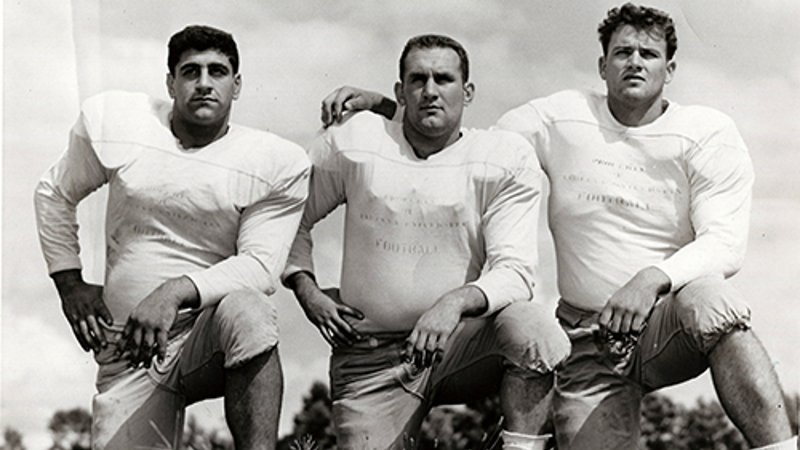
Ed’s last two “senior” seasons were his most successful. In both seasons, despite Indiana not being a powerhouse football team, he was named for the All-State College First Team Offense & Defense by the Indianapolis Star and earned Honorable Mentions for both the UPI All-American and AP All Big 10. In 1952, he was named the Big 10 MVP Lineman of the Year, as well as 1st team All American “60 Minute Team” by the Chicago Tribune. At the end of the 1952 season, Ed played in both the Shriners’ College All Stars North-South game in Miami, FL as well as the Senior Bowl in Mobile, AL. Due to scheduling conflicts, he declined invitations to play in the Blue-Gray Game and the Shriners All Stars East-West Game at the end of his final college season. His proudest achievement of the 1952 nine-game season was 427 minutes played, which may still be a Big 10 and NCAA record. Unfortunately, I.U. never recognized him in its Athletic Hall of Fame, as official records were not kept of his team’s losing seasons.
In the spring of 1953, Ed left I.U. prior to earning his Master’s degree when called to serve his country during the Korean conflict in the U.S. Air Force. During his military service, he was chosen by J. Edgar Hoover to work as an international courier. He was later honorably discharged from reserve forces as a First Lieutenant.
After his active service ended in 1955, Ed played in the Canadian Rugby Union (later the CFL) for the Winnipeg Blue Bombers. He had an offer to play for the Chicago Bears, but he turned it down as the Blue Bombers paid more money. However, Ed quickly realized that his prospects for injury with no long-term medical benefits were not worth the abuse his body suffered playing pro ball. After one season, he returned to Indiana to work on the Pennsylvania and Nickel Plate Railroad lines. He later served proudly as a fireman with the Fort Wayne Fire Dept. for 15 years, achieving the rank of Captain.
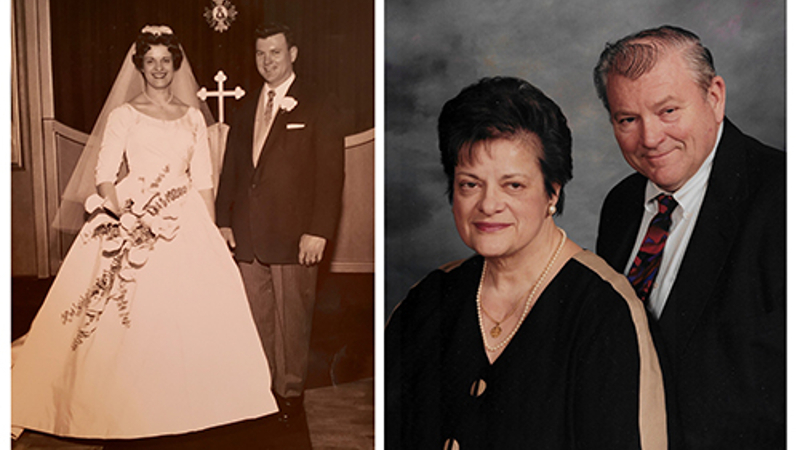
He met the love of his life, Rosalind Cozmas, and married her on February 5, 1961. His love of family led him to embrace Rosie’s family’s Macedonian way of life, and he was ever grateful for being accepted into the Macedonian community of Fort Wayne. Ed and Rosie had two children, Nick and Mary. While he encouraged his children to love athletics, Ed never pressured his son to play football. Despite his love for the game, he did not want his son to endure the lifelong consequences from the types of injuries he had suffered on the football field.
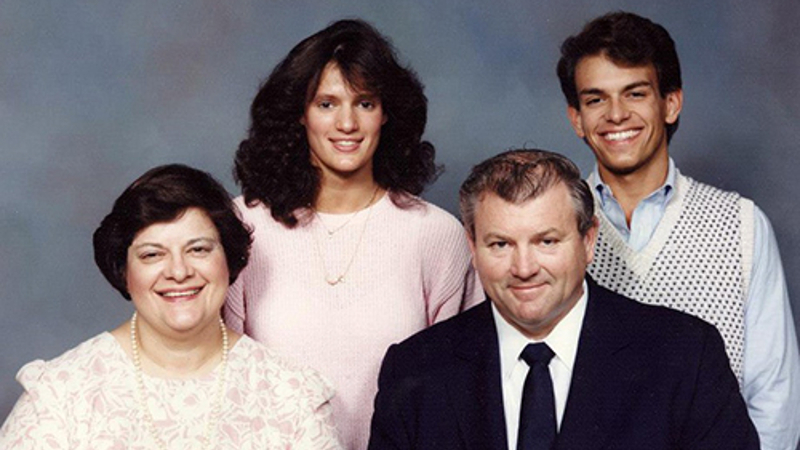
Ed was passionate about investing in the stock market, always willing to teach friends and family how to chart stocks and ride the waves with the bulls and the bears. He was almost never seen without his Wall Street Journal, even in the steam room at the downtown YMCA. He also loved his kennel full of hunting beagles, perhaps his greatest joy after his family during his adult years. A bit unique, Ed’s quirkiness, occasional explosive outbursts and unusual use of expletives could be shocking to strangers, but they were amusing and endearing to those who knew and loved him. He was an honest man who gave truthful advice, putting family and unconditional love first. Friends lovingly referred to him as “Big Eddie”, but to his family he was “Big Daddy”, “Poopsie”, “Dedo”, or “Papa Grande”.
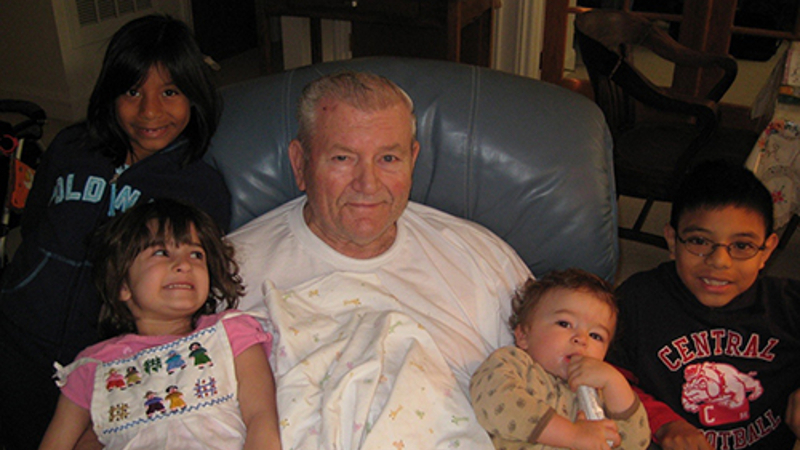
Later in Ed’s life, he was diagnosed with Alzheimer’s-related dementia. However, as news reporting and coverage of CTE slowly grew, Mary and Nick began discussing the possibility that their father might be suffering from CTE instead. After all, throughout their lives, he had exhibited the typical symptoms of depression, explosive outbursts and organizational dysfunction that accompany the disease. However, as Ed advanced in age and lost more of his memory, his temper mellowed and his loving nature became much more evident.
Upon his death on August 3, 2013, the family was fortunate to coordinate a brain donation to the UNITE Brain Bank. The team at the Brain Bank was able to definitively tell them that Ed Roth had lived with relatively severe CTE for much of his adult life. It was a comfort and relief for Nick and Mary to understand their father with this new perspective.
Ed always preached the life lessons he learned playing football. He loved the game and the bonds it helped him forge with players he encountered on both sides of the line, but he also understood the physical toll it took on his life. A product of his persevering generation, Ed lived his life with courage, strength, and occasional frustration, sharing his love for his family and friends, as well as capitalism and country, with all willing listeners.
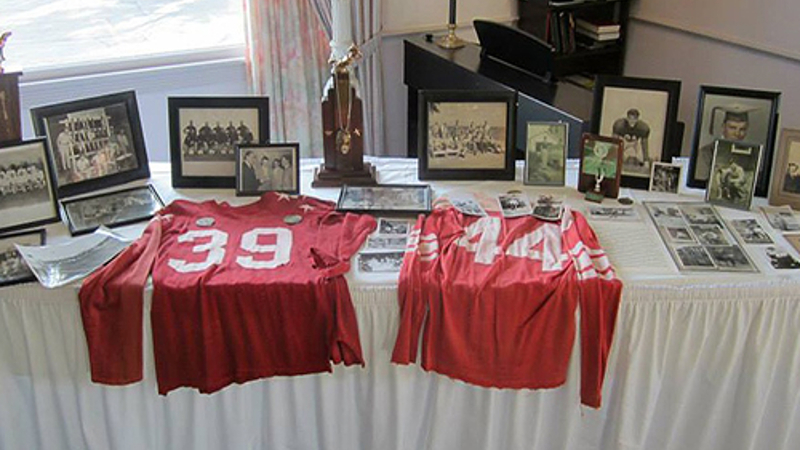
We are grateful to the wonderful team of Boston University doctors who interviewed and debriefed us, giving us answers to questions that otherwise would have never been answered. Nick and Mary’s only regret is their mother predeceased their father, and she did not receive the same knowledge and closure. Edward Allen Roth was a wonderful husband, father, grandfather, uncle, friend and patriot. Bog da Prosti (Memory Eternal), “Handsome Eddie”.
